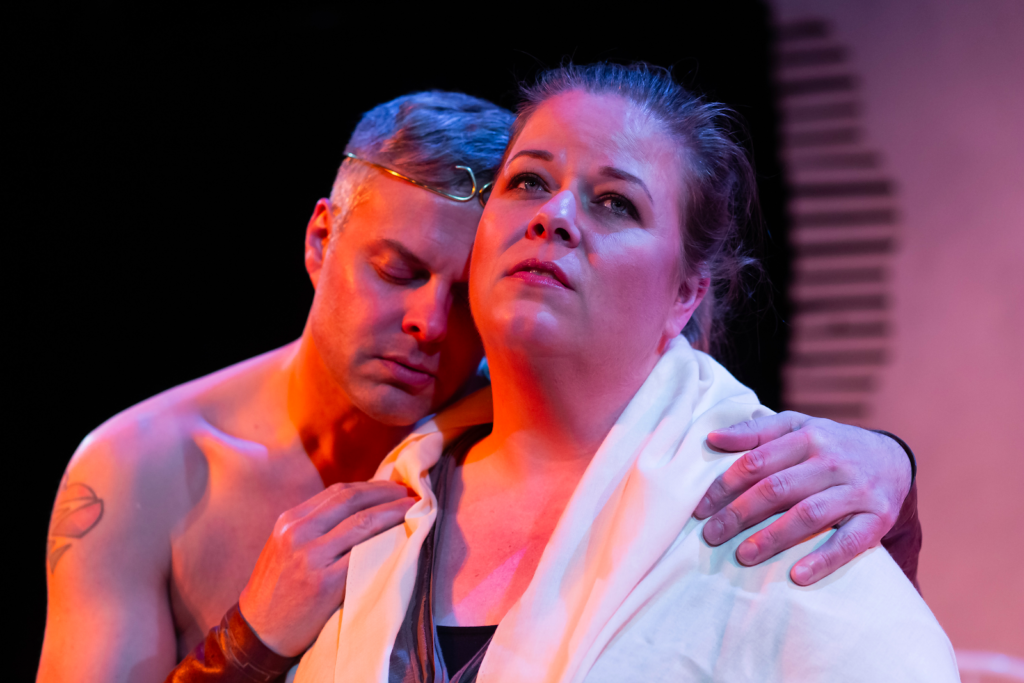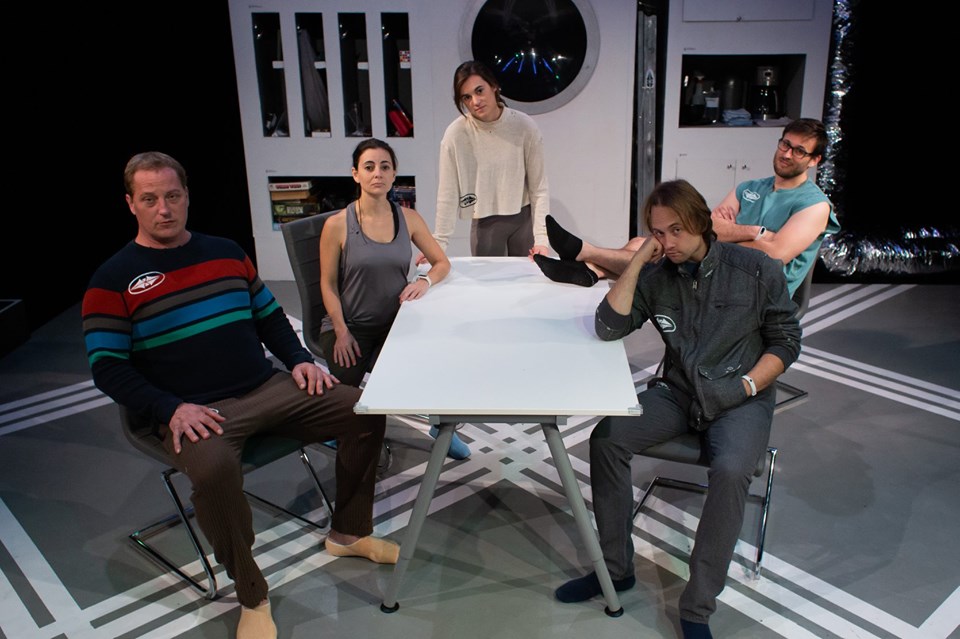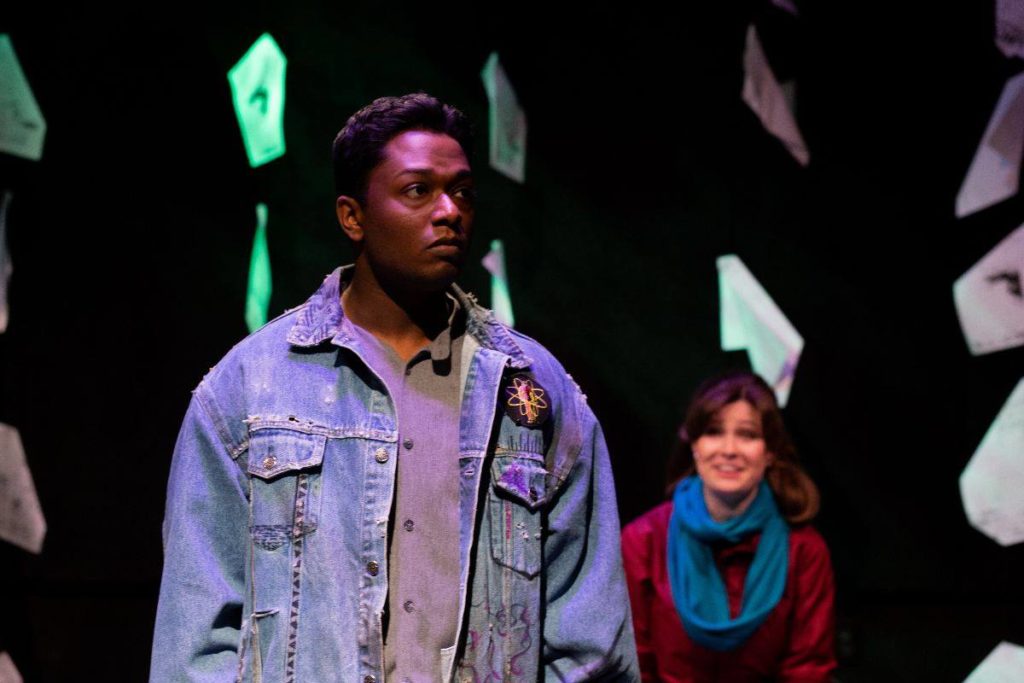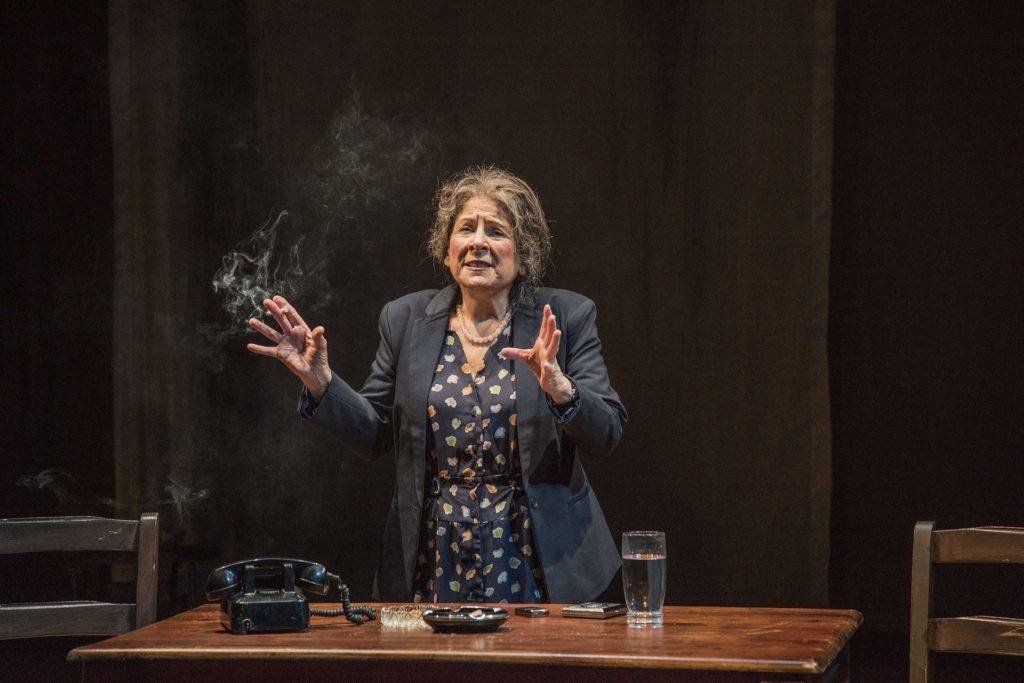
Photo by Jake Scaltreto. Who is their right mind double-crosses a half goddess, dark sorceress capable of patricide on a whim? That idiot, Jason.
Presented by Flat Earth Theatre
Written by Allison Gregory
Directed by Elizabeth Yvette Ramirez
March 15 – 30, 2019
The Mosesian Center for the Arts
321 Arsenal Street
Watertown, MA
Flat Earth Theatre on Facebook
Critique by Gillian Daniels
(Watertown, MA) The myth of Medea is a story of betrayal and fury, where Jason of the Argonauts takes a sorceress wife for material gain and is deeply surprised when she takes her vengeance out on him and their children. Here, the myth of a child-killing witch fits roughly over a more contemporary story of an overworked nurse in pediatric oncology as she takes a night for herself to recount a bitter divorce with humor and then with searing rage. In mainstream culture, the Classical myth of Medea has become known as the story of a mother so cartoonishly evil, it’s difficult to feel the full impact of the horror her narrative contains without exploring each bloody layer. Luckily, the audience of Not Medea has been blessed with both the intimacy of a stripped-down theater experience and the raw passion of actress Juliet Bowler as the titular-woman-who-is-not-Medea-though-she-also-plays-Medea.
Not Medea appears to be a combination of genres, a one-woman show fused with a Classical play, complete with Chorus (Cassandra Meyer). There’s a late reveal that further opens the story into discomfort and parental Hell, but the melodrama keeps the bones of a Greek tragedy by centering a character’s terrible trauma and the wisdom she gains from it. Bowler as the Woman and director Elizabeth Yvette Ramirez make remarkable choices in humanizing a character who’s not a clear-cut heroine.
Bowler, as always, brings grit to her role, and, here, sympathy. She plays Medea and the Woman with the same tumult of anger, lust, and hurt, even if their actions aren’t quite identical. We get the sense of this stressed, tough as nails nurse seeing this play and hating how much she sees herself in it. Certainly, as an audience, we are asked to judge each character presented in the show, like Gene Dante as the heroic Jason with a selfish surfer dude’s dimwitted edge, but we are never made to regard them with the inhumanity and scorn that so many versions of Medea heap on these characters.
I like how brave the play is in addressing the fallibility of mothers. It’s something I’ve been delighted to see in few other shows where women who have children are not portrayed as goddesses or people always able to see the best in their kids, but fallible individuals with their own sources of pain. Yes, facing the imperfection of mothers can be a tough sit, but the way this show explores all the troubles and regrets of motherhood is deeply refreshing.
Even the Chorus seems to have some internal struggles regarding her relationship to the story. Meyer repeatedly nears the end of the stage with fear, unable to leave. She also, memorably, seems furious with the Woman for addressing the audience directly–obviously the Chorus’s job, and a delicious meta moment in the narrative.
Not everything works for me. Playwright Allison Gregory’s makes some distracting choices. The sections of the play that more strictly adhere to the source material often become repetitive, jarring with the contemporary ebb and flow of Not Medea’s other, less Classical scenes. I think there are story elements in the show that would have packed a firmer punch with some careful editing. Also, I found Gregory’s choice in names for the Woman’s offspring just a little too on-the-nose.
Ultimately, the play succeeds in what it seems to set out to do: exploring the layers of a Classical myth with understanding and thought. Like the queen goddess Hera angry at her husband for his many dalliances or the punishment Aphrodite earns for not being loyal to a husband she was made to marry in the first place, popular Greco-Roman mythology has been filtered through a lens that dismisses female anger. Not Medea leans into that fury and, like many Greek tragedies, comes out the other side wiser for it.


 Presented by the
Presented by the 
